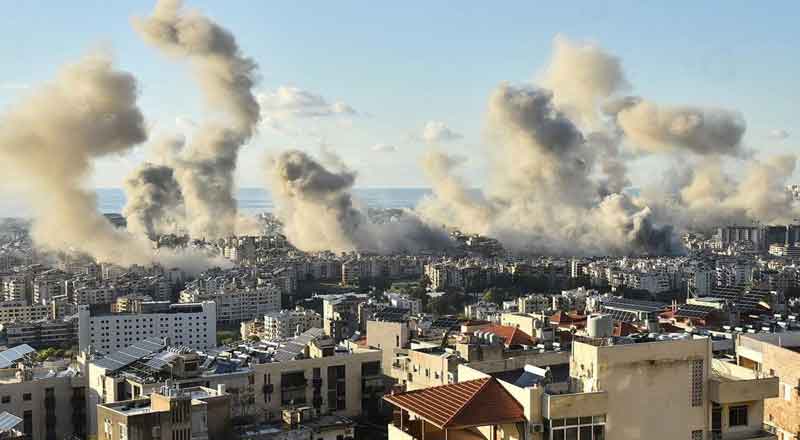In a dramatic sequence of events, the Israeli Air Force conducted a swift and targeted airstrike on 20 Hezbollah-associated sites in Beirut’s Dahiyeh region, just hours before a ceasefire agreement was finalized. This rapid operation, completed in a mere 120 seconds, highlighted Israel’s decisive approach against the Iran-backed group while setting the stage for a US-brokered ceasefire to halt a 14-month-long conflict.
Details of the Airstrikes
The Israeli Air Force, using eight fighter jets, launched a precision strike targeting Hezbollah’s critical infrastructure. According to the Israeli military, seven of the targets were financial hubs, including headquarters, warehouses, and branches of the Al-Karch Al-Hassan Association—allegedly integral to Hezbollah’s terrorist funding.
The remaining 13 sites struck were military facilities, including an aerial forces center, intelligence headquarters, weapons depots, and other strategic infrastructure. Israeli intelligence played a pivotal role in identifying and coordinating these attacks.
The strikes reportedly caused significant damage, with three fatalities and 26 injuries reported. However, local accounts allege that some targeted buildings were residential, raising concerns about civilian casualties amidst the escalating conflict.
The Ceasefire Agreement
Following the strikes, Israel’s security cabinet approved a ceasefire with Hezbollah, effective Wednesday morning. The deal, mediated by the US and France, aims to de-escalate tensions and provide a framework for stability along the Lebanon-Israel border.
Under the agreement, Israel will begin a phased withdrawal of its troops over the next 60 days. Concurrently, the Lebanese army is tasked with assuming control over border territories to prevent Hezbollah from rebuilding its military infrastructure.
US President Joe Biden, who announced the ceasefire, emphasized the importance of maintaining security in the region. He also engaged in direct communication with Israeli Prime Minister Benjamin Netanyahu and Lebanese Prime Minister Najib Mikati to underscore the shared responsibility for implementing the agreement.
Strategic and Humanitarian Implications
The airstrikes underline Israel’s commitment to neutralizing threats posed by Hezbollah while signaling its readiness for high-precision military operations. However, the reported civilian impact has drawn criticism, highlighting the delicate balance between military objectives and humanitarian concerns.
The ceasefire, while offering a pathway to peace, faces challenges. Ensuring Hezbollah’s compliance, rebuilding trust between Lebanon and Israel, and addressing underlying tensions in the region will be critical.
Israel’s rapid airstrikes on Hezbollah sites underscore its strategic resolve, yet the subsequent ceasefire agreement reflects an acknowledgment of the need for diplomatic resolution. As Israel begins its troop withdrawal and Lebanon assumes greater border control, the ceasefire represents a fragile yet significant opportunity to stabilize the region. The coming weeks will test the durability of this truce and the willingness of all parties to prioritize peace over conflict.
(With inputs from agencies)





